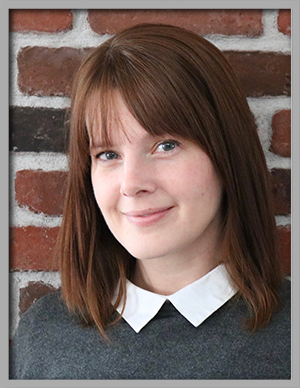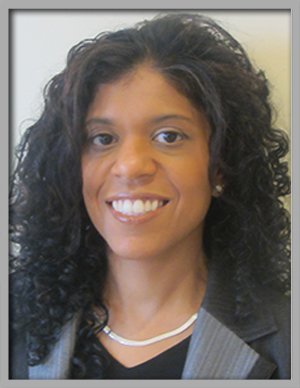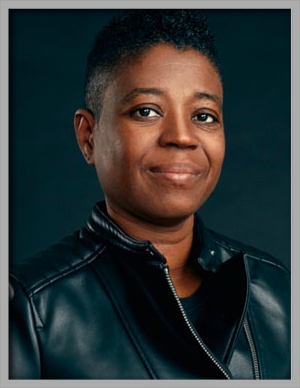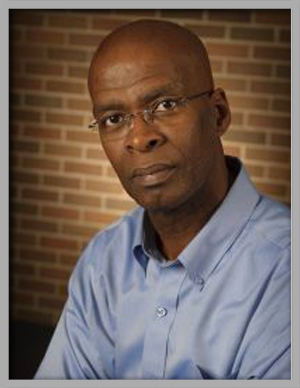Presenter: Dr. Gillian Parekh, Dr. Carl James, Katheryn Underwood, Karen Murray, Luke Reid, David Cameron, Allison Gaymes San Vicente & Jason To
Workshop Description
As educators, administrators, and system leaders, knowing how to effectively respond to students’ diverse ability can be complicated. When disability or exceptionality are believed to be present, special education is often involved and responsible for identification, intervention and individualization as well as for organizing support. Special education plays a significant role in accessing specific services and access to resources, including technology, equipment, augmentative communication devices, ASL, deaf-blind and blind educational services that are a fundamental right for students (Snoddon, 2020a, 2020b; Snoddon & Murray, 2019). However, special education practices have been historically steeped in medicalized understandings of disability, which ultimately approach student learning from a deficit model (Connor, 2013; Mitchell, 2015). Also, there continues to be an overrepresentation of racialized and historically marginalized students involved in special education, both within special education identifications as well as placements in special education programming (Brown & Parekh, 2010; Parekh & Brown, 2019). As such, many advocacy and rights organizations have raised ongoing concerns that bias and racism may be influencing perceptions of and responses to students’ perceived ability (Coalition for Alternatives to Streaming in Education, n.d.; Higher Education Quality Council of Ontario, see Pichette et al., 2020; Ontario Human Rights Commission [OHRC], 2018).
As a team of ten writers across four institutions, we have developed a critical reflective practice guide that provides an overview of critical considerations for special education as well as examines the role that bias and racism play in addressing student ability. In addition, this guide offers educators, administrators, and system leaders’ strategies they can adopt to reduce the negative effects of bias and racism in decisions around special education. As part of this work, we challenge current, medicalized, and dichotomous notions of ability and/or disability and propose a cross-solidarity strategy for greater equity within public education.
Bio
Dr. Gillian Parekh
York University Faculty of Education

Dr. Gillian Parekh is an Assistant Professor and Canada Research Chair in Inclusion, Disability and Education within the Faculty of Education at York. As a previous teacher in special education and research coordinator with the Toronto District School Board, Gillian has conducted extensive system and school-based research in Toronto in the areas of structural equity, special education, and academic streaming. In particular, her work explores how schools construct and respond to disability as well as how students are organized across programs and systems.
Allison Gaymes San Vicente
Superintendent - TDSB

Alison Gaymes San Vicente is a Superintendent of Education with the Toronto District School Board. She centralizes the disruption of educational practices disadvantaging those pushed to the margins/underserved students. In her most recent roles as a Centrally Assigned Principal Coach for School Improvement, School Principal and secondee at York University’s Faculty of Education, her desire to disrupt the status quo through redesigning both policy and structure was evident. In addition to being a member of the provincial writing team for the Principal’s Qualification Program (2017), an author in books such as The Leader Reader, Not Here: Principal Power Meets Relationship Power (2018);“Restacking the Deck: Streaming by class, race and gender in Ontario schools (2014) and “Rhymes to Re-education: A Hip Hop Curriculum Resource Guide for Educators with Social Justice Activities'' (2014), Alison has been the recipient of the Queen Diamond Jubilee Award (2014) and Canada’s Outstanding Principals Award (2016).
Jason To
Coordinator of Secondary Math and Academic Pathways - Toronto District School Board

Jason To is currently the Coordinator of Secondary Mathematics and Academic Pathways for the Toronto District School Board, where he works with K-12 educators to address structures and practices related to academic streaming and set the conditions to support more equitable, inclusive and culturally responsive teaching, particularly in mathematics. In 2015, Jason was a department head in a northwest Toronto high school where he eliminated Applied math classes and instead offered inclusive Grade 9 Academic math, which lead to significant achievement gains, particularly for students with special education needs. He is a co-author of the TDSB and Elementary Teachers Federation of Ontario collaborative document "Addressing Anti-Asian Racism: A Resource for Educators." Jason has served as a guest instructor at York University and the University of Toronto, presented at provincial and international mathematics conferences, and consulted with over 20 Ontario school boards on destreaming, and anti-racism and inclusion in mathematics education.
Kathryn Underwood
Toronto Metropolitan University

Kathryn Underwood is a Professor in the School of Early Childhood Studies at Toronto Metropolitan University. Through critical disability theory as a starting point, Dr. Underwood investigates how society responds to and constructs childhood in social institutions. Dr. Underwood’s interests are in human rights and education practice, particularly with regard to disability rights and inclusive education.
Karen Murray
Superintendent- Toronto District School Board

Karen Murray is the System Superintendent for Equity, Anti-Racism, Anti-Oppression and Early Years in the Toronto District School Board. She most recently was the Centrally Assigned Principal for the Centre of Excellence for Black Student Achievement. Karen leads initiatives focusing on Black Students’ Success and Excellence from K-12 and most recently was appointed by the Ontario College of Teachers to lead the development of an Additional Qualification on Anti-Black Racism. In 2020, Karen was honoured as one of the 100 Accomplished Black Canadian Women.
Luke Reid
Human Rights Lawyer and Social Worker

"Luke Reid is a human rights lawyer and a social worker who has spent his career serving clients with disabilities. Previously Luke led ARCH Disability Law Centre’s education law practice. He currently works as Counsel at the Canadian Human Rights Commission. Luke has represented numerous students with disabilities in disputes with school boards and universities and has led multiple law reform and research projects on disability-related issues in the education system. He has extensive expertise in human rights, education, and accessibility law. He recently returned to school to complete his PhD in Social Work at the University of Toronto.
Please note that the opinions shared by Luke in this workshop are his alone and cannot be attributed to any person or organization that he may represent in his capacity as a lawyer. "
Dr. Carl James
York University Faculty of Education

Carl E. James holds the Jean Augustine Chair in Education, Community and Diaspora in the Faculty of Education at York University and is the Senior Advisor on Equity and Representation at York University, as part of the Division of Equity, People and Culture. He is Professor in the Faculty of Education and holds cross-appointments in the Graduate Programs in Sociology, Social and Political Thought, and Social Work. He was the Director of the York Centre on Education & Community (2008-2016) which he founded, and was one of six Advisors to the Ontario Minister of Education and Premier (2017-2018). His research interests include the examination of issues of access, equity, and inclusion for racialized individuals in terms of their education and employment opportunities, school retention and achievements. James is widely recognized for his research contributions in the areas of intersectionality of race, ethnicity, gender, class and citizenship as they shape identification/identity; the ways in which accessible and equitable opportunities in education and employment account for the lived experiences marginalized community members; and the complementary and contradictory nature of sports in the schooling and educational attainments of racialized students. In advocating on education for change, James documents the struggles, contradictions and paradoxes in the experiences of racialized students at all levels of the education system.
David Cameron, PhD
Toronto District School Board/Senior Manager of Research and Development

David Cameron is the Senior Manager of the Research and Development Department in the Toronto District School Board. He is an educator and education policy sociologist with research interests in school change and the interrelationship between educational policy intentions or design and peoples’ experiences within policy frameworks. David has twenty years of experience working in the school systems of Ontario, U.S. and U.K. Most recently, David worked as a Director of Research for People for Education, an NGO think tank that advocates for public education. David believes that societal health and Human Rights depend on an enriched and vibrant public education system.
